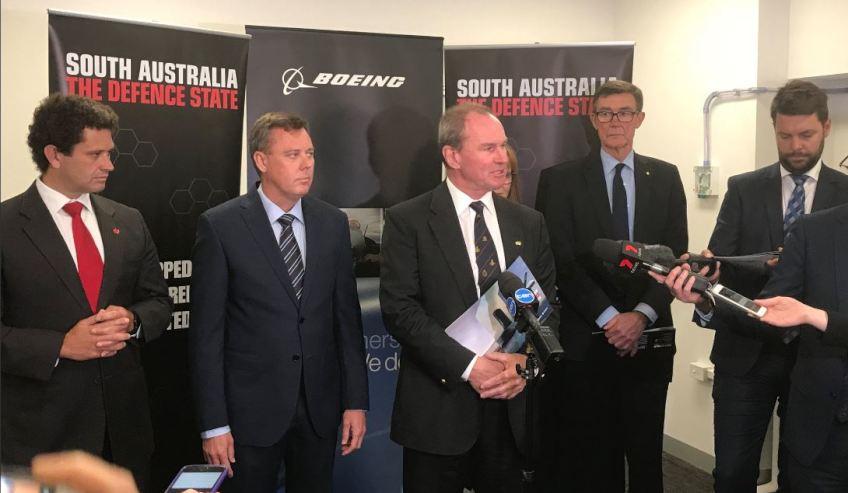As South Australia gears up for a naval shipbuilding boon, the state labor government has put the call out for greater co-operation with the federal government across Defence and defence industry in 2018.
SA Minister for Defence and Space Industries Martin Hamilton-Smith has urged the federal government to put aside its differences and political posturing in 2018 for the sake of improving the nation's defence industry.
"If there's anything I'd like to see in the way of co-operation it would be a little bit more co-operation from the federal government. We've hardly heard from Minister Payne," he said.
Minister Hamilton-Smith, a former Australian Army commanding officer, criticised Defence Minister Marise Payne's lack of presence in South Australia, the self-declared 'Defence State', and singled out Defence Industry Minister Christopher Pyne for excluding the state government wherever possible.
"I think the Defence Minister has rarely visited South Australia, and has not reached out to the state government very much at all, and Minister Pyne is very keen to ensure that the state government gets closed out of the picture as much as is possible so that, I presume, he can get all the credit for whatever is going on," he said.
"Now, I think it's time to [move away] from all that. I think we're only going to make this work if we collaborate and work together, and the time for posturing and positioning and back slapping is over. I think the coming year is a time for collaboration and I think Minister Pyne could put the party politics to one side and just get on with working collaboratively with the South Australian government, industry and the unions, and that might help everybody."
Minister Hamilton-Smith has previously criticised the federal government for working in a "silo of secrecy", for failing to actively communicate with SA and other states about key defence projects and investments, including the new shipbuilding college that is scheduled to commence operation in Adelaide in January 2018.
"Minister Pyne and Minister Payne are two of the only ministers who do not have a ministerial council, that is a council where they get together all of the state ministers and discuss portfolio issues," Minister Hamilton-Smith told Defence Connect in July.
"If you look at energy, if you look at Attorney-General, if you look at health, if you look at education, every federal minister has a council of that form.
"Minister Pyne and Minister Payne seem to prefer to work in a silo and they're not communicating well with the states. As a consequence, we're not on board with the decision making loop.
"And decisions are being announced out of Canberra without consultation with the states, they're not seeking our advice or involvement and there's a lack of teamwork emanating from Canberra at the moment. And that's not only for the college but across the board, and it would be to the benefit of the nation if that situation improved."
2017 saw South Australia foster more collaborative relationships with other states and territories, with Minister Hamilton-Smith, Victoria's Minister for Industry and Employment Wade Noonan and Western Australia's Minister for Defence Issues Paul Papalia joining forces in July to address their concerns about the Future Submarine Program (FSP), Australia's largest ever defence acquisition. The ministers wrote a letter to the Senate economics committee to call for tougher contractual obligations on the prime contractors for the Future Submarine Program.
In August this year, SA and the ACT also signed a five-year memorandum of understanding signalling an intent to work together towards the creation of a Canberra-based agency with a prominent presence in Adelaide.
Defence SA worked closely with the ACT to develop the MoU, an agreement that came about after SA and the ACT presented a joint paper at the COAG Industry and Skills Council meeting in Canberra in early August, outlining ways to expand the nation’s space industry through education, research and industry-led initiatives.
SA and the ACT said the agreement reflects both jurisdictions’ commitment to ensuring all of Australia can participate in the international space industry, which produces revenue of $420 billion annually.


